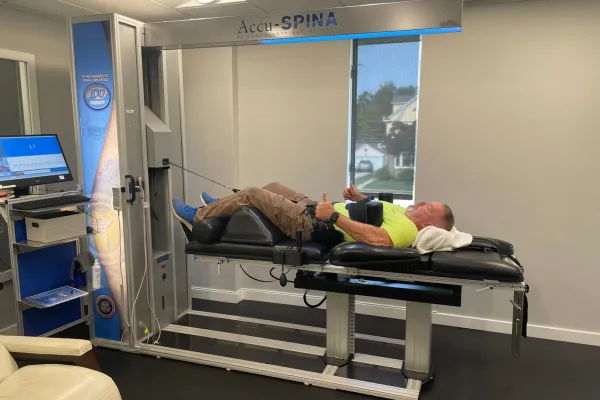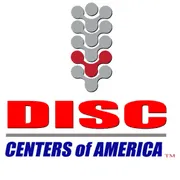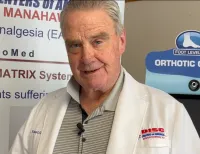Everything you need to know about Spinal Decompression.

Spinal Decompression: Is it right for me?
Spinal Decompression: Is it Right for Me?
Lower back pain: it's a discomfort nearly everyone will encounter at some point in their lives. Whether it manifests as a sharp pain in the lower left abdomen and back, a persistent ache on the lower back's left or right side, or perhaps even chronic lower back pain, it's an issue that demands attention. From pinched nerves in the lower back to severe back pain that's been nagging for months, understanding the root of the pain and the potential solutions is crucial. This brings us to a rising star in the world of back pain relief: spinal decompression. But, is it right for you? Let’s explore.

What Causes Lower Back Pain?
Lower back pain can arise from various sources. Sometimes it's due to strain from lifting heavy objects or poor posture. In other cases, conditions like herniated discs, stenosis, or even issues like lower left back pain or lower right back pain could indicate problems with specific muscles or nerves. Diagnosing back pain is essential, so if you’re thinking, “Where can I find a lower back pain doctor near me?”, it might be time to consult a professional and determine the type of back pain you’re experiencing.
Spinal Decompression: An Overview
Spinal decompression treatment, particularly non-surgical decompression, has emerged as a potential remedy for various back issues. But how does it work?
Understanding the Process: Spinal decompression, often associated with chiropractic care, aims to relieve pain by gently stretching the spine. This can be especially effective for conditions like herniated discs, offering potential spinal decompression for herniated disc relief.
Effectiveness and Concerns: Many wonder, "Does spinal decompression work?" or “What is the success rate of spinal decompression?” While many have found relief from ailments like sciatic nerve pain or stenosis, individual results can vary. It's also vital to be aware of the risks of spinal decompression therapy, though they're minimal.
Is Spinal Decompression Right for Me?
Duration of Pain: If you're thinking, "My lower back has been hurting for months," or experiencing chronic or severe lower back pain, spinal decompression might offer relief. Over 91% of our patients at Manahawkin Disc Center have seen considerable relief.
Type of Pain: For specific issues like a pinched nerve, herniated disc treatment using decompression, or relief from stenosis, this therapy has been largely beneficial.
Insurance and Costs: Is spinal decompression covered by insurance? Coverage varies, so always consult your insurance provider.

Practical Steps for Back Pain Relief
Living with back pain can be a daily challenge, affecting not just physical health but also taking a toll on one's mental well-being and quality of life. Before jumping into more intensive treatments, it's often worth trying some at-home remedies and adjustments to your daily routine. Here are some practical steps you can take:
Exercises for Lower Back Pain: Engaging in targeted stretches and exercises can alleviate discomfort and strengthen back muscles. Incorporate routines that focus on the core, as a strong core often leads to a healthier back.
Posture Check: Ensure you maintain a good posture, especially if you're seated for extended periods. Consider investing in ergonomic chairs or standing desks, or setting regular reminders to check and adjust your posture throughout the day.
Heat and Cold Therapy: Alternating between heat packs and cold packs can provide relief from inflammation and ease muscle tension. Remember, always wrap packs in a cloth to prevent skin damage.
Over-the-Counter Pain Relievers: Non-prescription pain relievers, when taken as directed, can provide temporary relief from back pain. However, always consult with a healthcare professional before starting any medication regimen.
Seek Expertise: From a spinal decompression chiropractic visit to searching for “lower back pain doctor near me”, professional guidance is invaluable. A trained expert can provide insights tailored to your specific condition and needs.
If you've tried these steps and still find yourself struggling with persistent back pain, it might be time to consider a more structured, long-term solution. Spinal decompression therapy, especially the non-surgical kind, has shown significant promise in treating various back pain causes. This therapy aims not only to provide relief but also to address the root cause of the pain. Given its non-invasive nature, it's a preferable option for many before considering surgical routes.
In conclusion, while at-home remedies and exercises play a crucial role in managing and potentially alleviating back pain, for those seeking a lasting solution, spinal decompression stands out as a promising choice. Always prioritize your well-being and consult with professionals to determine the best path forward.

